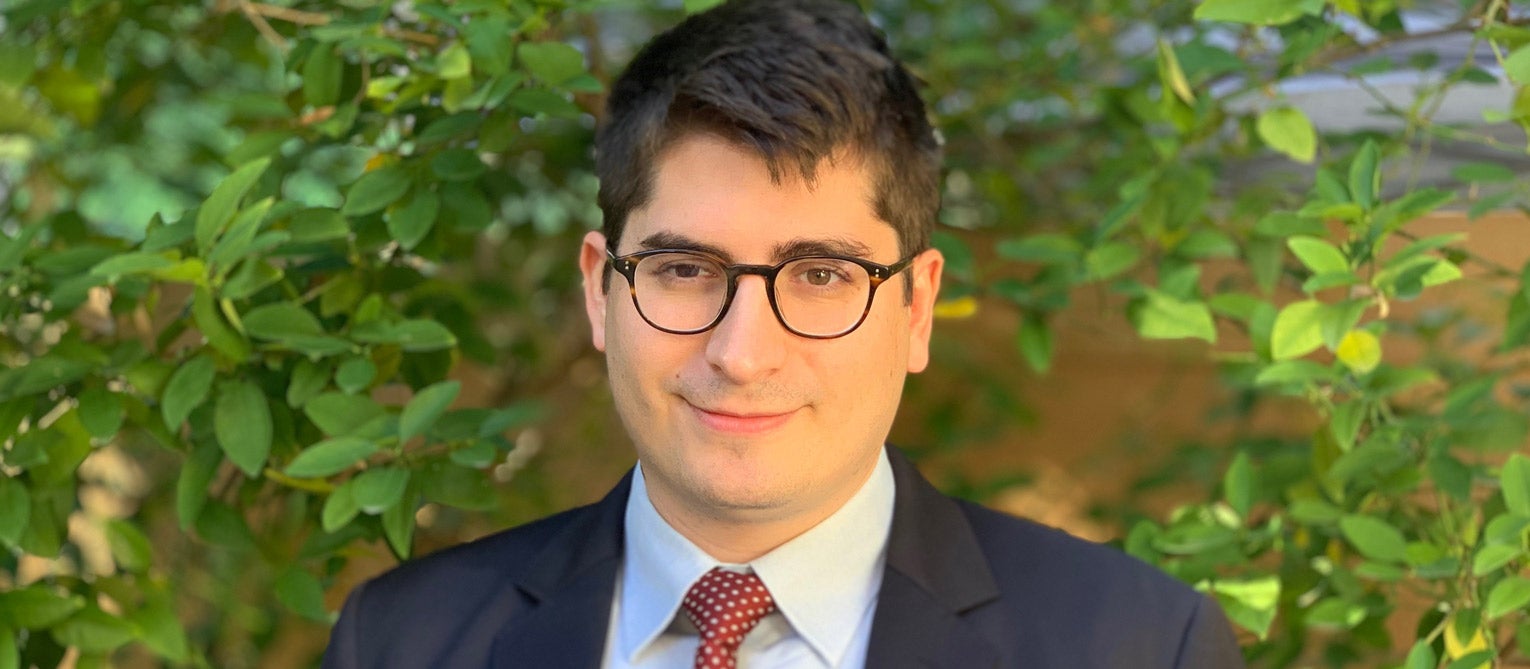 Liberal Arts Route to Business
Liberal Arts Route to Business
Mark Hoelzel brings an important liberal arts viewpoint to the business world, but the route to his current position was not a direct one.
As the director of both Financial Planning and Analysis and Strategy for Undertone, a New York City-based media and technology company, Hoelzel works with the company’s senior executive team to make decisions regarding products, sales, and operations.
When he began college, Hoelzel did not anticipate a career in business. He had a variety of interests, and when he came to the Dietrich School he settled on two areas of focus: philosophy and sociology. This decision proved to be a good one, providing Hoelzel with the chance to interact with and learn from many different people.
“Pursuing philosophy at Pitt was an incredible opportunity to study with luminaries in analytical philosophy, from Robert Brandom to John McDowell, to the graduate TAs, and my fellow classmates,” he explains. “I don’t think there is a comparable opportunity available at any other public university.”
In addition to gaining a deep understanding of their field of study, many students who major in liberal arts subjects develop a set of valuable “soft skills” that can make them successful in a variety of disciplines. Hoelzel sees the value in this type of education, particularly in business, where people with these features are needed. He explains that liberal arts programs like the ones offered in the Dietrich School enable students to develop qualities like empathy, which, he says, is a characteristic that is often missing in the business world. “Having empathy for others is critical for being a good employee, manager, or serving a customer, regardless of the industry,” he says.
He explains that part of the value of the Dietrich School’s liberal arts curriculum is how the courses taught him to view the world through the lens of another person, whether that was through studying Russian literature (his favorite non-philosophy course), or through roaming the Frick Fine Arts Library and learning about art history. Hoelzel also left the Dietrich School with “an endless desire to learn more about the world and a sharp sense of analytical rigor.”
He notes that, in his experience, many undergraduate students avoid philosophy courses because of the daunting and complex subject matter they cover. While this may be true, the toughness of these courses is part of their value; a student leaves a philosophy course with more than simply the information contained within the texts. “The stamina one develops while engaging with difficult philosophical texts is one of the best forms of analytical strength training,” Hoelzel says.
Hoelzel completed his sociology and philosophy coursework, and along the way he developed an interest in economics. So, when he graduated from the Dietrich School in 2011, he sought a graduate program to further pursue this next direction. Specifically, he wanted to learn more about economics methods, and was curious about how and why economists approach work in the way that they do.
Hoelzel subsequently enrolled in a graduate program in economic history at the London School of Economics, where he says, “like most liberal arts students, my academic interests evolved,” and he found himself drawn to the information that can be learned from historical economic events. He was fascinated by “extending the precedents of economic history to understand contemporary economic challenges.” This idea was captured in his thesis and is something he now harnesses when making decisions in his current role.
The theme of evolution and adjusting course with new knowledge runs throughout Hoelzel’s career, and he emphasizes the importance of and enjoyment that can be gained from being a lifelong learner. He says, “knowledge is not an outcome, rather it is a process. And fortunately, I left the Dietrich School knowing a liberal arts education does not end on graduation day.”
His Dietrich School education has served him well and has proven to be versatile in its applications. As a philosophy major, Hoelzel says he gained “the rigor, patience, and confidence to approach new subjects no matter how intricate, be it new markets, business contracts, or financial models.” Now, the work he enjoys the most is analyzing new markets because of the creative thinking it requires. “There is rarely a map available when charting a new market,” he offers.
Despite his enjoyment of his current position, Hoelzel has not lost his passion for learning or the curiosity that carried him through his educational and professional career to lead him to this role. He will continue to embrace this core value as he moves through life.
”At heart,” he says, “I am still the recent liberal arts graduate who left college with a sincere curiosity in everything. I hope I continue to be this person, regardless of the success I might have in any particular field.”
